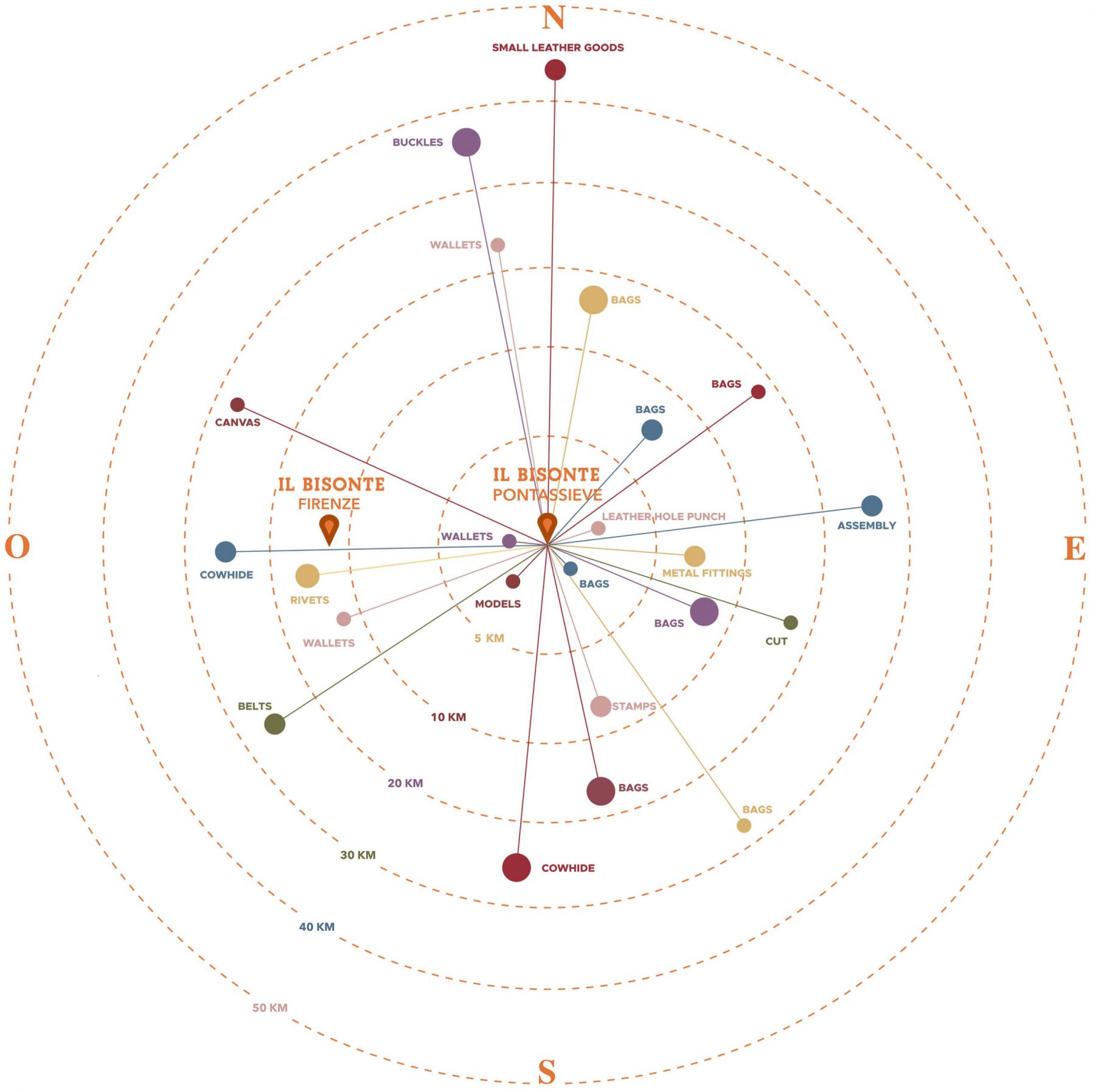Il Bisonte began production in 1970 in Pontassieve on the banks of the Arno river, just a few minutes from Florence. Pontassieve is a unique place steeped in centuries of culture, awareness, and the know-how to make beautiful, quality, stylish products.
Here, in the heart of Tuscany, surrounded by hills, castles and enchanting nature, manufacturers, artisan workshops and small family-run businesses operate.
It is here that Il Bisonte’s most important factory has been flourishing for 50 years, thanks to the skilled craftsmanship of men, women, artists and artisans.
This production epicenter spreads over 30 kilometers; it’s where culture and tradition are manifested in the hard-working communities engaged in tanning, dyeing, cutting, splitting, skiving and hand-stitching. Here the supply chain has always supported all the various production processes while simultaneously addressing the need for environmental sustainability by utilizing vegetable tanning; it is the guardian of ancient crafts needed to innovate manufacturing techniques.
Il Bisonte collections are made up of quality bags and accessories that contribute to responsible, short-range, Made-in-Tuscany manufacturing, and are made with the awareness that social, cultural and environmental well-being are values worth preserving and passing on to future generations.
Florence, Palazzo Corsini The showroom and part of Il Bisonte’s offices are still located in the Tuscan capital, in the very same Palazzo Corsini overlooking the Arno where popes, heads of state, intellectuals and artists have stayed, and where fifty years ago the brand’s first creations were dreamed up, designed and produced.
Pontassieve Creative center, pattern-making studio, historical archives, samples production, workshop for restoring vintage bags and accessories, warehouses, retail and administrative offices. The leather hole punches Il Bisonte artisans use to hand-cut leather are produced in Pontassieve.
Rufina Its enchanting countryside was cultivated long ago by the Etruscans; here wine is produced that shares a quality with Il Bisonte bags: it improves over time. Rufina’s artisan workshops produce Il Bisonte bags.
Pelago The metal fittings used for Il Bisonte bags and accessories are made in Pelago by artisans who practice and pass down centuries-old traditions of wrought-iron working.
Vicchio Homeland to two founding fathers of Italian art: Giotto and Beato Angelico. Il Bisonte produces bags in Vicchio.
Borgo San Lorenzo This town was already renowned during the Renaissance for leather-working and shoe-making, and has always had a special vocation for artistic craftsmanship. Il Bisonte produces wallets in Borgo San Lorenzo.
